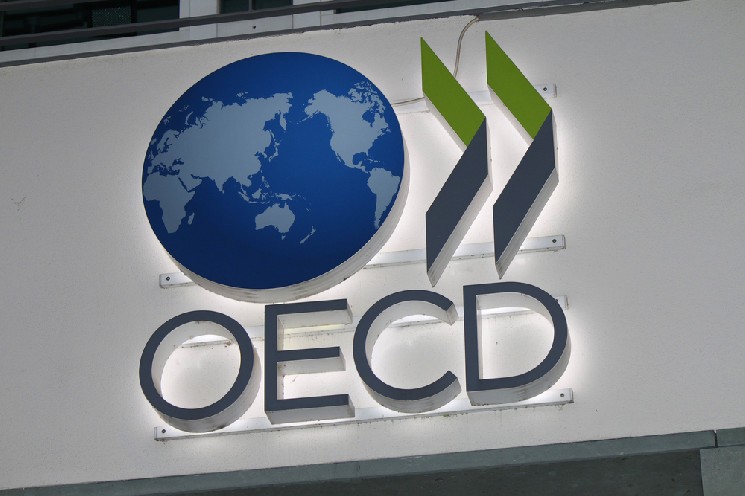OECD Releases New Global Tax Reporting Framework for Crypto Assets

The Organization for Economic Co-operation and Development (OECD) has released its new tax reporting framework, the Crypto-Asset Reporting Framework (CARF), according to a press release Monday.
The framework, which was approved in August, ensures «the collection and automatic exchange of information on transactions for relevant crypto,» the report said. The definition of crypto assets «includes assets that can be held and transferred in a decentralised manner, without the intervention of traditional financial intermediaries, including stablecoins, derivatives issued in the form of a crypto-asset and certain non-fungible tokens,» the report said.
Intermediaries and other service providers facilitating exchanges between relevant crypto assets, such as exchanges, brokers and ATM operators, will also be included in the scope.
«The current scope of assets, as well as the scope of obliged entities, covered by the Common Reporting Standard (current standards) do not provide tax administrations with adequate visibility on when taxpayers engage in tax-relevant transactions in, or hold, relevant crypto assets,» the report said. Hence, the OECD has created this new framework.
CARF was developed in light of the crypto industry’s rapid growth. Last year, the industry went from having a market capitalization of $715 billion in January to nearly touching $3 trillion before plummeting this year. In addition, these developments are in line with the recent developments in the global anti-money laundering standards from the Financial Action Task Force.
However, in May, the crypto industry pushed back on tax reporting measures for cryptocurrencies at an OECD meeting.
The CARF sets rules that crypto asset firms must report in the country that they conduct business in. Exchanges between relevant crypto assets and fiat currencies, along with exchanges between one or more type of crypto and transfers of crypto (including retail payment transactions), will need to be reported.
Like the OECD’s Common Reporting Standard (CRS), the framework’s due diligence process requires both the individual and entity customers and controlling persons to identify themselves. Indirect investments in crypto assets via derivatives and investment vehicles are now also covered by the CRS. Amendments were also made to include central bank digital currencies in the CRS, rather than in the CARF. The CRS sets out the financial account information to be exchanged and reported, plus due diligence procedures.
Alongside these rules «work is ongoing on an implementation package to ensure the consistent domestic and international application of the CARF,» the report noted.






 Bitcoin
Bitcoin  Ethereum
Ethereum  Tether
Tether  USDC
USDC  TRON
TRON  Dogecoin
Dogecoin  Cardano
Cardano  Bitcoin Cash
Bitcoin Cash  Zcash
Zcash  Chainlink
Chainlink  Monero
Monero  LEO Token
LEO Token  Stellar
Stellar  Litecoin
Litecoin  Hedera
Hedera  Dai
Dai  Cronos
Cronos  Tether Gold
Tether Gold  OKB
OKB  Ethereum Classic
Ethereum Classic  KuCoin
KuCoin  Gate
Gate  Algorand
Algorand  Cosmos Hub
Cosmos Hub  VeChain
VeChain  Dash
Dash  Tezos
Tezos  TrueUSD
TrueUSD  Stacks
Stacks  IOTA
IOTA  Decred
Decred  Basic Attention
Basic Attention  Theta Network
Theta Network  NEO
NEO  Synthetix
Synthetix  Qtum
Qtum  0x Protocol
0x Protocol  Ravencoin
Ravencoin  DigiByte
DigiByte  Nano
Nano  Zilliqa
Zilliqa  Siacoin
Siacoin  Numeraire
Numeraire  Ontology
Ontology  Waves
Waves  Status
Status  BUSD
BUSD  Enjin Coin
Enjin Coin  Hive
Hive  Pax Dollar
Pax Dollar  Lisk
Lisk  Steem
Steem  Huobi
Huobi  NEM
NEM  OMG Network
OMG Network  Bitcoin Gold
Bitcoin Gold  Augur
Augur  Ren
Ren  Bitcoin Diamond
Bitcoin Diamond